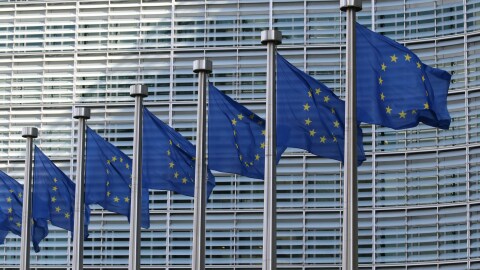After nearly six months at the helm of the Presidency of the Council of the European Union, the Czech Republic will hand the role to Sweden at the beginning of 2023. Each Presidency brings a particular emphasis, and with each Presidency comes an opportunity for that Member State to contribute to smart policymaking in the EU.
Czech Republic: The push for strategic economic resilience
Departing from the ‘strategic autonomy’ stance of the French Presidency, the Czech Republic showed real leadership when it recognized in its Presidency priorities the importance of the connection between EU economic resilience and building trusted partnerships with democratic countries, not least the US. For those active in or dependent on technology to do business in the EU, international cooperation is particularly critical, so Czech efforts to shift the tone of discussions away from ‘technology sovereignty’ to ‘open strategic resilience’ were important, and in many ways an unsurprising move by a small open economy, dependent on strong international trade links.
Several recent studies demonstrate the economic consequences of a protectionist EU agenda – a point not lost on the Czech Government. Frontier Economics finds that Europe’s efforts to pursue a strategic autonomy agenda could reduce EU gross GDP by up to 0.75%, where disproportionate effects will be felt by EU Member States that are dependent on open digital borders, such as the Visegrad “V4” countries (Czech Republic, Poland, Slovakia, Hungary countries) and the D9+ group of digital frontrunner countries. Meanwhile the European Centre for International Political Economy (ECIPE) pointed out during the Czech Presidency that for Europe to compete with other frontrunner economies, its businesses and consumers must have access to the best technology in the world. These dynamics were recognized by the Czechs and we welcome the role it played over the past six months in driving a strong and (mostly) unified transatlantic approach on digital policy.
Sweden: A champion for the Single Market
As we move into the Swedish Presidency and the 30th anniversary of the EU’s Single Market in January 2023, we note Sweden’s focus on innovation, open trade and strengthening the EU’s internal market, with Prime Minister Ulf Kristersson being very clear that “as an open and export-dependent economy, it is in Sweden's interest to strengthen the EU's internal market, the digital internal market and the EU's position as a trading block.” Again, as Sweden is an open liberal economy, this shift in focus makes sense.
And we are encouraged by the Swedish Presidency’s priorities, not least because they recognize the importance of the Single Market and the need to continually strive to make it as seamless as it can be for businesses and citizens alike. At Amazon, we regard the Single Market as one of the most important enablers of European SMEs. We launched here more than 20 years ago, operate stores in 12 different languages, and ship millions of products to customers across the EU from hundreds of logistics centers – both for Amazon and on behalf of our sellers. This would not be possible without a functioning Single Market and the Swedish Government has correctly identified the need to ensure that the EU’s focus returns to ensuring it does.
As a company that works within the Single Market every day, we are very much aware that barriers to operating across the Single Market remain, and that they disproportionately affect small and medium sized businesses, the backbone of the European economy. A recently commissioned study by Implement lays out 11 concrete recommendations to improve the Single Market, such as the adoption of a Single VAT ID, which would remove administrative roadblocks for European SMEs trying to expand their business cross border within the EU; or the need for harmonization of sustainability legislation across EU Member States, so that complex and often differing compliance requirements in different EU countries can be avoided.
The Swedish Government has correctly recognized that strengthening and deepening the Single Market will promote free trade, which in turn will help to accelerate the green transition and support the ongoing digitalization of the economy, not least in its own region. As an open and liberal economy, Sweden understands the importance of this and will use its Presidency of the EU to champion the Single Market. So, as we say goodbye to the Czech Presidency, which sought to promote the EU’s external relationships, we welcome the Swedish Presidency’s focus on matters closer to home, not least on a fully-functioning EU Single Market.
Děkuji Česko! Lycka till Sverige!
Lucy C. Cronin is Amazon’s VP for Public Policy, Europe.













